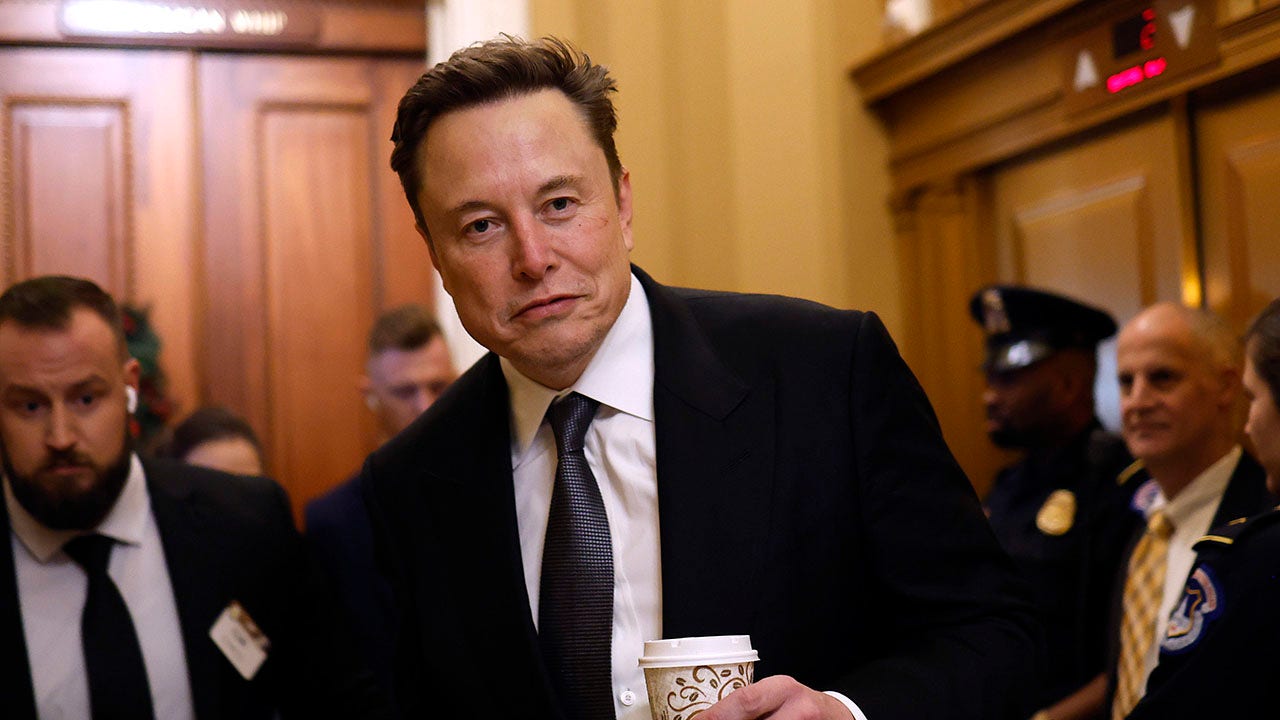Politics
‘Catastrophic results’: Union, taxpayer groups take stab at DOGE in latest lawsuit over IRS data access

A Legal Challenge to Elon Musk’s Department of Government Efficiency (DOGE)
Introduction to the Lawsuit Against DOGE
In a recent lawsuit filed on Monday, taxpayer and union groups have accused Elon Musk’s Department of Government Efficiency (DOGE) of violating multiple laws in its efforts to identify and eliminate wasteful government spending. DOGE, created earlier this year by an executive order, is a temporary agency within the White House. Its mission is to optimize the federal government, streamline operations, and slash spending within 18 months. However, the plaintiff groups argue that DOGE’s methods have crossed legal boundaries, raising concerns about executive overreach, civil servant protections, and the security of citizens’ data.
The lawsuit specifically allege that DOGE has launched a "sweeping campaign" to access highly sensitive information systems without proper authorization. These systems are said to contain personal and financial data, including social security numbers, bank account information, and tax records. The groups claim that DOGE’s actions violate the Tax Reform Act, Privacy Act, and Administrative Procedures Act. They argue that the agency’s access to such sensitive information lacks statutory authority and could lead to catastrophic consequences if left unchecked.
DOGE’s Actions and Allegations of Overreach
DOGE has reportedly accessed sensitive systems at several federal departments, including the Treasury, Labor, Education, and Health departments, as well as agencies like the Consumer Financial Protection Bureau, Office of Personnel Management, and Internal Revenue Service (IRS). The lawsuit alleges that this access has allowed DOGE to obtain confidential business information, tax records, and ongoing IRS investigations. This information could potentially include details about Musk’s own businesses or those of his competitors, raising ethical concerns about the concentration of power in the hands of a single, unelected individual.
Lawyers for the plaintiff groups emphasize that no other business owner has access to such extensive information about their competitors, and they argue that this unchecked access poses a significant threat to democracy and fair competition. The groups are seeking a temporary restraining order to halt DOGE’s activities until the court can review the legality of its actions. They also request that the court declare DOGE’s data access unlawful, order the deletion of any illegally obtained information, and establish new security protections to prevent future abuses.
The Court’s Initial Ruling and Ongoing Concerns
U.S. District Judge Tanya Chutkan recently ruled against the plaintiff groups’ request for a temporary restraining order, citing a lack of evidence showing that DOGE’s actions have caused "irreparable harm." However, Judge Chutkan expressed concerns about what she described as the "unchecked authority of an unelected individual," referring to Elon Musk. She also questioned DOGE’s accountability to Congress, highlighting the need for greater oversight of the agency’s activities.
Despite the court’s initial ruling, the lawsuit continues to raise important questions about the limits of executive power and the potential risks of consolidating vast amounts of sensitive information in the hands of a single individual or agency. The plaintiff groups remain determined to challenge DOGE’s actions and ensure that the agency operates within the bounds of the law.
Broader Implications and Public Reaction
The lawsuit against DOGE is part of a larger trend of resistance to actions taken during Elon Musk’s tenure. Critics argue that DOGE’s efforts to slash government spending and streamline operations are being carried out with little regard for legal or ethical standards. The agency’s access to sensitive data has sparked fears about the potential misuse of personal and financial information, particularly given Musk’s dual role as a business magnate and the head of a government agency.
The public reaction to DOGE’s actions has been mixed, with some hailing the agency’s efforts as a necessary step toward reducing government waste, while others view it as an overreach of executive power. The lawsuit serves as a reminder of the delicate balance between efficiency and accountability in government operations. As the legal battle unfolds, the outcome will have significant implications for the future of government transparency, data security, and the role of unelected individuals in shaping policy.
A Growing Coalition of Opposition
The lawsuit is not the only challenge DOGE has faced. Last week, a coalition of Democratic state attorneys general filed a separate lawsuit to restrict DOGE’s access to federal data about government employees. The lawsuit, led by New Mexico Attorney General Raul Torrez, argues that Musk’s access to such data poses a threat to democracy. Attorneys general from 14 states, including Arizona, California, Connecticut, Hawaii, Maryland, Massachusetts, Michigan, Minnesota, Nevada, Oregon, Rhode Island, Vermont, and Washington, have joined the effort.
The coalition contends that there is no greater threat to democracy than the accumulation of state power in the hands of a single unelected individual. They argue that DOGE’s actions undermine accountability and transparency, and they seek to limit the agency’s ability to access and wield sensitive information. These legal challenges highlight the growing resistance to DOGE’s approach and the concerns about its impact on democratic institutions.
Conclusion: The Future of DOGE and Government Accountability
The legal battle surrounding DOGE reflects broader debates about the role of government, the limits of executive power, and the importance of protecting sensitive information. While DOGE’s goal of reducing government waste may resonate with many, the manner in which it is achieving this goal has raised significant legal and ethical questions. The outcome of these lawsuits will likely set important precedents for how government agencies can operate and the extent to which unelected individuals can wield power over sensitive data.
As the court continues to review the allegations against DOGE, the public will be closely watching to see how these issues are resolved. The stakes are high, with implications not only for the current administration but also for the future of government accountability and transparency. Whether DOGE’s actions are ultimately deemed lawful or not, this lawsuit serves as a reminder of the importance of holding those in power accountable and ensuring that the rights of citizens are protected.


















